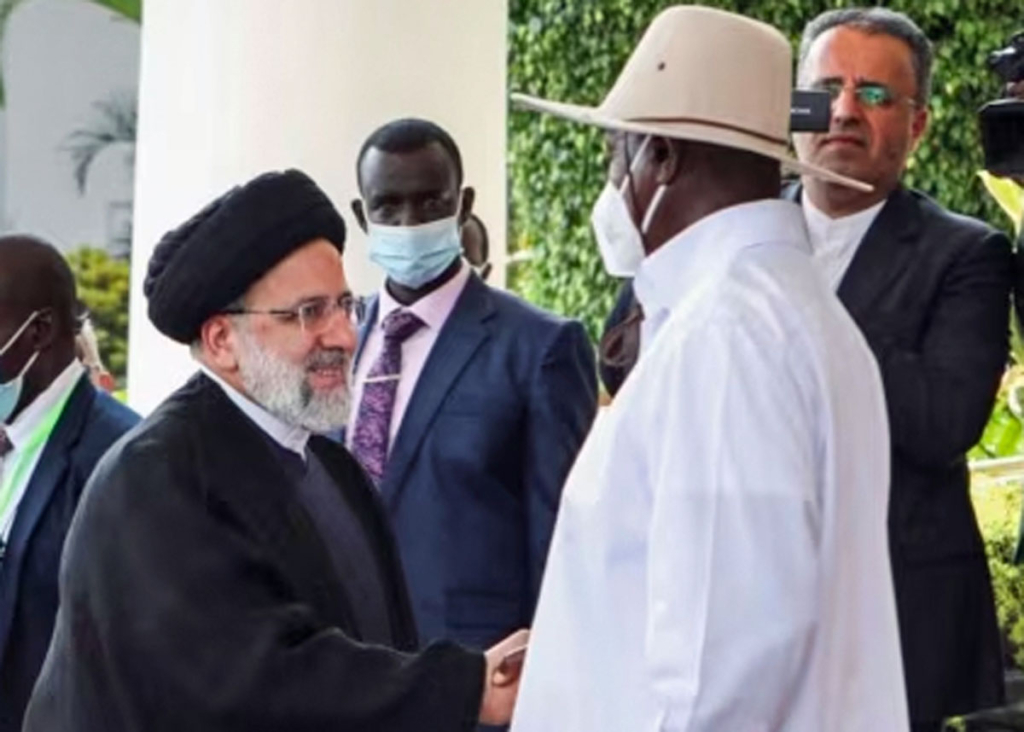By Joto La Jiwe

Iran President Ebrahim Raisi (left) shakes hands with Uganda’s President Yoweri Museveni at the State House in Entebbe, Uganda on July 12, 2023. (Photo courtesy of VOA)
During his recent state visit to Uganda, Iranian President Ebrahim Raisi didn’t hide his homophobia as he lauded his Ugandan counterpart, Yoweri Museveni, for assenting to the country’s new Anti-Homosexuality Law.
That action by Museveni was like signing a death warrant for members of the LGBTQI+ community suspected engaging in what the new law describes as aggravated homosexuality, including repeated convictions for homosexual activity or having sex while HIV-positive.
On a mission to further strengthen ties with the Uganda, Raisi was well aware that homosexuals are a favorite target of Museveni and a subject worth raising in a joint press conference with him.
He praised Museveni for signing the bill into law after ignoring calls from local and international human rights defenders asking him to veto it.
Like Museveni, Raisi also claimed that homosexuality in part of the so called “Western imperialist agenda”, which he said is part of a Western plan to put an end to human reproduction — what Raisi called “the generation of human beings”.
“Western countries are putting pressure on independent countries by attacking the family foundation, promoting the ugly phenomenon of homosexuality, the spread of extremism and terrorism, and the use of human rights as a tool …” Raisi said. “The Western countries try to identify homosexuality as an index of civilization, while this is one of the dirtiest issues.”
He told Museveni that only development of cultural interactions and cultural cooperation between Iran and Uganda will be effective in confronting what he described as plots devised by the enemies of the two nations.

Zahra Sedighi-Hamadani (left) and Elham Choubdar (Photos courtesy of Women’s Agenda)
Like Uganda, Iran is one of the countries with the harshest laws against LGBTQI+ people. Not only does it provide for the death penalty for consensual same-sex relations; it also reportedly has people sitting on death row who allegedly committed sodomy as minors.
A recent example of Iran’s homophobia is the treatment of LGBTQ rights activists Zahra Sedighi-Hamadani and Elham Choubdar, who were sentenced to death last fall after being convicted of “corruption on earth” and “trafficking”.
U.N. human rights experts appealed to Iran to spare them from execution.
Amid international pressure, the death sentences of both women were overturned earlier this year.
Joto La Jiwe, the author of this article, is a Ugandan correspondent for the African Human Rights Media Network. He writes under a pseudonym. Contact him at [email protected].
Source: African Human Rights Media Network member Erasing 76 Crimes.
COMMENTS
This Hate has always been a trait of both Christian and Muslim religions.
Shameful behavior
God has turned his back on these 2 groups.